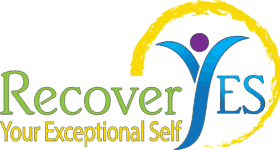Recently, I quit eating bacon. Now, this was a pretty big change for me, I had been in resistance to it for a very long time. In a moment I’ll explain what finally tipped the scale, but you might be questioning how eating bacon relates to addiction problems.
Was I addicted to bacon? There are a couple of questions that, when answered, would give us a pretty good idea.
- Was life unmanageable as a result of eating bacon (or any addictive behavior) regularly? Answer: NO
- Did I lie about eating bacon (or any addictive behavior) especially when talking to vegetarians (non-addicts)? Answer: NO
So, saying I was addicted to bacon would be over-dramatizing. Still, I loved my extra-crispy bacon with just about any breakfast concoction. But, it didn’t end there, I loved it on salads, wrapped around scallops or a filet, and just about anywhere else it made some epicurean sense.
What caused my sudden desire to make this drastic change?

I was reading a book about a Swami’s journey to swamidom called, The Journey Home. It was a fascinating page-turner. You can find it here.
In the book, Swami described how pigs live in India. It is obvious that observing pigs in their natural habitat is the source of the old saying, Happier than a pig is shit! So, while this isn’t the first time I’ve been exposed to stories about how bacon comes to be, this time I couldn’t ignore it. Bacon had to go!
At first, as with any habit that we are determined to change, it was challenging. I tried substituting other non-pork breakfast meat. That was a bust. It just made me miss my bacon even more. Finally, I had to accept that I needed to find other foods I like equally well. Different yes, but still satisfying.
With any change, it’s important to recognize that the short-term discomfort ultimately leads to long-term appreciation, especially when you’re in the early stages of changing a habit that you have come to rely on for comfort. Change is an unavoidable part of life and our evolution. And, evolution moves in one direction forward and towards improvement. Even if it doesn’t seem that way at first.
Can you see how this applies to making the changes necessary to beat an addiction problem? The key is to come to the unwavering realization, similar to my bacon enlightenment, that the addictive behavior has to go!
So, how do you come to your own realization about addiction?
For starters, you’re at the right place. Learning about and coming to understand addiction starts to take its power and allure away.
If you were to check in to a treatment center as a result of drug or alcohol addiction, they might put you in medically supervised detox for a week to 10 days. Similarly, it takes a week or so to get past the initial shock of discontinuing any addictive behavior so that you can start to gain some awareness.
Awareness is what’s required to reach the unwavering realization point. To get there requires what we refer to as muscling your way to sobriety. It’s made much easier with a good support system along with the right tools and information.
